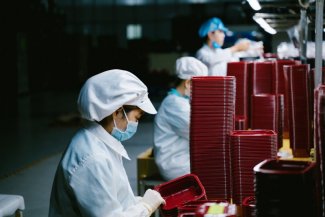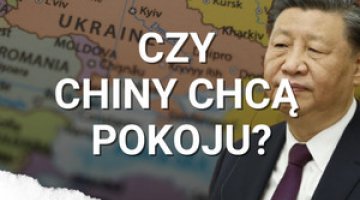The delta variant in China: the ‘zero infections’ strategy

The appearance of the delta SARS-CoV-2 variant in the People’s Republic of China (PRC) has forced the authorities to introduce the strictest restrictions there since June 2020, when Beijing declared victory in the ‘people’s war against the coronavirus’ after the outbreak of the Wuhan pandemic at the beginning of last year. The number of infections has continued to rise since 20 July, when the first case of the delta variant was reported in the country. Although according to official data the rate of new infections is around 110 a day, this variant of the virus has already been detected in at least 14 out of 31 provincial administrative units, including Wuhan and Beijing. It is now appearing practically all over China.
In reaction, the government are returning to the ‘zero infections’ strategy which was tried in the first period of the pandemic. They are restricting travel between provinces and recommend that people refrain from moving inside them. Screening tests are being carried out on a mass scale in cities where infections have been found, and neighbourhoods where infections have been discovered are being put into isolation. The authorities have also decided to suspend the issue of new passports to private persons, who account for 98% of Chinese citizens travelling abroad, for an indefinite period. The organisation of any collective events in regions where the delta variant has appeared has also been forbidden.
Commentary
- The PRC’s government was successful in the first year of the COVID-19 pandemic when it adopted a ‘zero infections’ strategy. Thanks to exceptional restrictions on the movement of people around the country, as well as strict prohibitions on leaving their place of residence in areas where the coronavirus appeared, it was possible to prevent mass infection – albeit not counting some regions of Hubei province, with its capital Wuhan, where SARS-CoV-2 was first discovered. At that time, travel into and out of the country was limited, and all visitors were subjected to a mandatory 21-day quarantine (14 days at a hotel and 7 at the place of residence). Although many restrictions were lifted in the second half of 2020, the life and activity of residents continue to be regulated by the COVID passport system in the form of a smartphone application that tracks contacts, and of late also confirms that the user has been vaccinated. Over the past year, over a dozen local outbreaks of coronavirus have been reported in China; these were effectively suppressed by local restrictions and mass screening tests, thanks to which the new cases did not negatively affect the functioning of the economy and society as a whole. In view of the high contagiousness of the delta variant, there is a risk that the existing tools will prove insufficient; this could translate into long-term restrictions in many regions of the PRC where there are currently local outbreaks. In the long run, the ‘zero infections’ strategy is likely to have high social and economic costs.
- The decision to maintain the ‘zero infection’ strategy has been dictated, among other reasons, by the public’s low herd immunity. Since the beginning of 2021, China has been carrying out a massive campaign in which 1.78 billion doses were to have been provided to the citizens and 223 million people were to have been fully vaccinated. However, the vaccines are domestically developed and – as some local experts admit – are less effective than products used in more highly developed countries. Experience from countries such as Indonesia, the Seychelles and Bahrain, where a significant percentage of the population was vaccinated with Chinese preparations, has shown that compared to Western vaccines, they have much less effect not only on the number of cases, but also on the percentage of hospitalisations and deaths. As a result of successfully halting the spread of COVID-19 in the first half of 2020, together with the use of less effective vaccines, the Chinese population has not developed a sufficient level of herd immunity in the face of the delta variant, which is characterised by its higher infection rate compared to the primal coronavirus.
- It does not seem that the Chinese Communist Party’s leadership will be ready to abandon the ‘zero infections’ policy any time soon, including for political reasons, even though some domestic epidemiologists have been calling for change. The CCP’s success has become an element of domestic and international propaganda in its ideological rivalry with the West. It has been used to emphasise the superiority of the supposedly meritocratic Chinese political system over liberal democracy. The ‘zero infections’ strategy also justifies the maintenance of restrictions in the population’s daily life, as well as the increased surveillance during the period of events which (from the party’s point of view) are liable to increased political risk. In February 2022, the Winter Olympics will be held in Beijing; this occasion is an opportunity to present the effectiveness of the Chinese model of state and the superpower status of the PRC. The 20th Congress of the CCP is planned for the autumn of 2022, at which major changes in the current model of socio-economic development are expected (which will probably arouse opposition from part of Chinese society). It is also likely that the CCP General Secretary Xi Jinping will choose not retire at that time – contrary to accepted practice since the 1990s – and will remain in power for at least another five-year term, which may cause tensions in the party. The decisions taken at the 20th Congress of the CCP will also have to be implemented by the Chinese National People’s Congress at the annual session in March 2023. Therefore, even before the first cases of delta were detected, the authorities had already announced that the pandemic restrictions in the PRC would not be lifted until at least next autumn. The appearance of the new variant favours the extension of the current restrictions and the continued border closures; it appears very convenient for the CCP’s leadership, as it will reduce contact between the Chinese people and unsupervised sources of information, and also make it harder for foreign observers to monitor the domestic situation.




